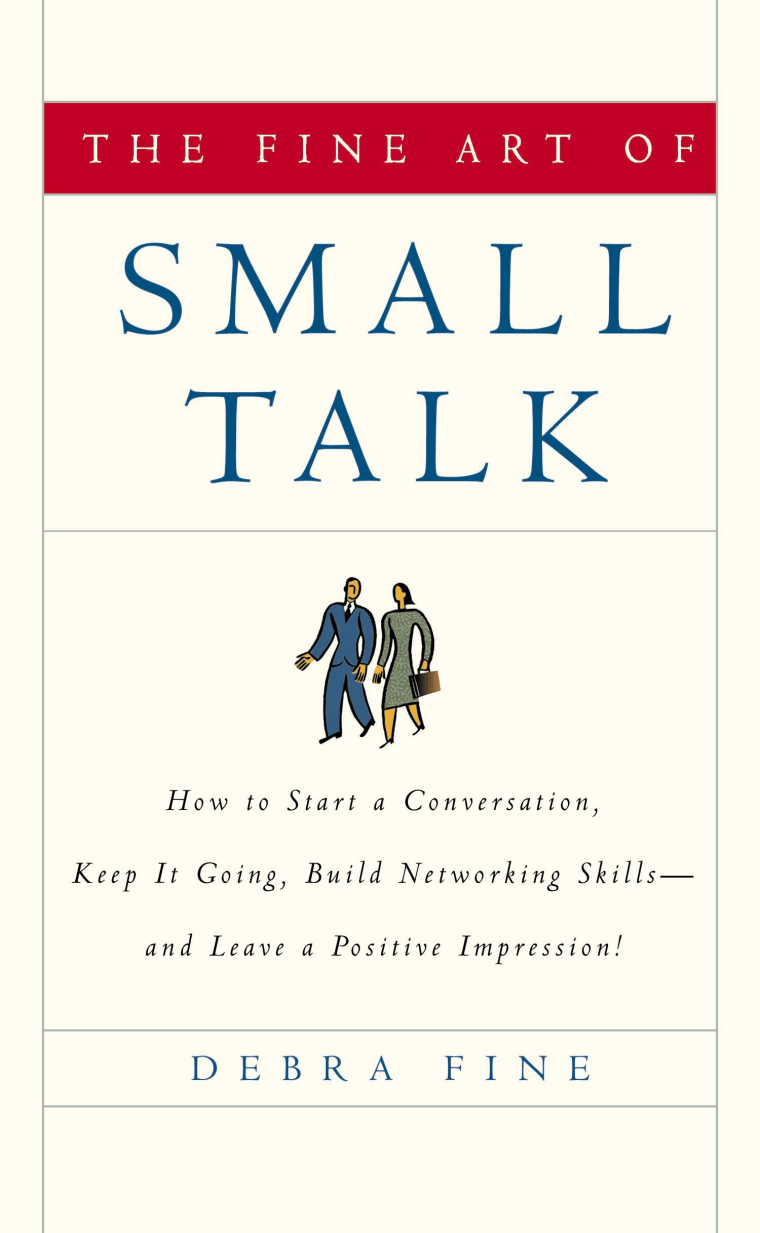You have been invited to yet another holiday open house, office party or social get-together and you find yourself standing in a room full of strangers. Now what do you do?
A) Stock up on food and find someplace comfortable to hideB) Hang out by the bar and wait for someone to approach youC) Escape as you see an opportunity
Answer: None of the above. Learn to be a skilled small talker!
When meeting new people and starting conversations, many people are nervous or apprehensive. It can be difficult to enter a room and view strangers everywhere you turn. Meeting all these people and engaging in conversation with them can be exhausting and overwhelming. But it does not have to be this way. Skilled small talkers turn holiday gatherings into opportunities for success. In fact, they realize that these holiday functions have the potential to become great networking opportunities.
Whether you are at a business meet-and-greet or a client’s open house, you can use conversational skills as a tool with which to build new connections, while avoiding awkward pauses and uncomfortable conversations. After all, any relationship, business or social, starts with small talk.
Mastering the art of small talk is not only essential in forming new relationships, but also in creating lasting positive impressions. Great small talkers are made, not born.
The next time you find yourself at a holiday function, try one of these top ten icebreakers:
1. “How do you know the host/hostess?”
2. “Describe some of your family holiday traditions?”
3. “Bring me up to date about your family/work.”
4. “Tell me about your plans for this holiday season …”
5. “What do you enjoy most about the holiday season? Why?”
6. “What you have got coming up or planned during the upcoming year?”
7. “Describe your typical holiday festivities …”
8. “What special gifts do you plan to give this year?”
9. “What was the best gift you ever received? Why?”
10. “How does the holiday season affect your work/industry/family?”

Once you have broken the ice, follow these important tips to ensure your small talk success:
Don’t rush through conversations. Take your time, and be sure to remember names and use them frequently during conversations.
Show an interest in every person you meet. By showing an interest, you are creating a favorable impression of yourself. People, even shy ones, like to talk about themselves, so let them.
Be prepared. Before entering an event, take a couple minutes and think of at least three conversation topics. Remind yourself of what you may already know about fellow attendees: their hobbies, activities or interests. If you happen to encounter an uncomfortable silence, these conversation points will always come in handy.
Always maintain eye contact. Eye contact is an easy way to make others feel comfortable, important and special.
Act confident through your body language, even if you are not. Nervous body language (twisting your hair, slouching shoulders, constant hand rubbing) can make others uncomfortable and anxious. Try to be aware of your body language when interacting with others.
Be a careful listener. By listening intently to what others are saying, you are not only making them feel important, but you can gather cues you need to keep the conversation going and bridge to new topics.
Don’t steal the show, and don’t let others steal the show, either. Try to give everyone in an interaction the opportunity to speak. If someone is monopolizing a conversation, wait for a pause or until that person takes a breath, and then make a comment that can steer the conversation in a new direction. Or include someone who has not been heard from by asking, “What has been going on in your department?” or “What are your views on this issue?”
Be appropriate. In certain settings, some topics may not be suitable. Be careful when asking about spouses and romantic relationships, because you may end up regretting it. Instead ask: “What’s been going on with the family?” or “Give me an update on your life since our last visit.”Do not ask about the job at Boeing unless you are sure he or she still works for Boeing. Questions that prevent “foot in mouth” disease are: “Bring me up to date about your work” or “What’s been going on with work?”
Don’t interrogate a conversational partner. Questions like: “Where are you from?” or “Are you married?” and “What do you do for a living?” can stop a conversation before it ever really starts.
Be respectful of the opinions of others. Not everyone agrees on things, and friendly disagreements can be a gateway to a great conversation. Offer your opinion of your favorite football team, the state of public education today or the future of the space program. Be sure to follow up with “What do you think?” or “Tell me your opinion.”
Have exit lines prepared. You will probably want to mingle with several people around the room. Ask for a referral to remove yourself from conversation: “Who do you know at this event that comes from a financial background?” If this produces a referral, then you are on your way. If not, you are still on your way with: “I need to locate fellow financial gurus in order to help me understand the information presented at the general session today. It was very nice meeting you.”
Fearful of hurting someone’s feelings? Ask them to join you: “I need to get some coffee, would you like to join me?” They can decline or join you, but at least you are moving around the room.
This holiday season, turn every conversation into an opportunity for success!
Visit for more holiday party conversation tips.